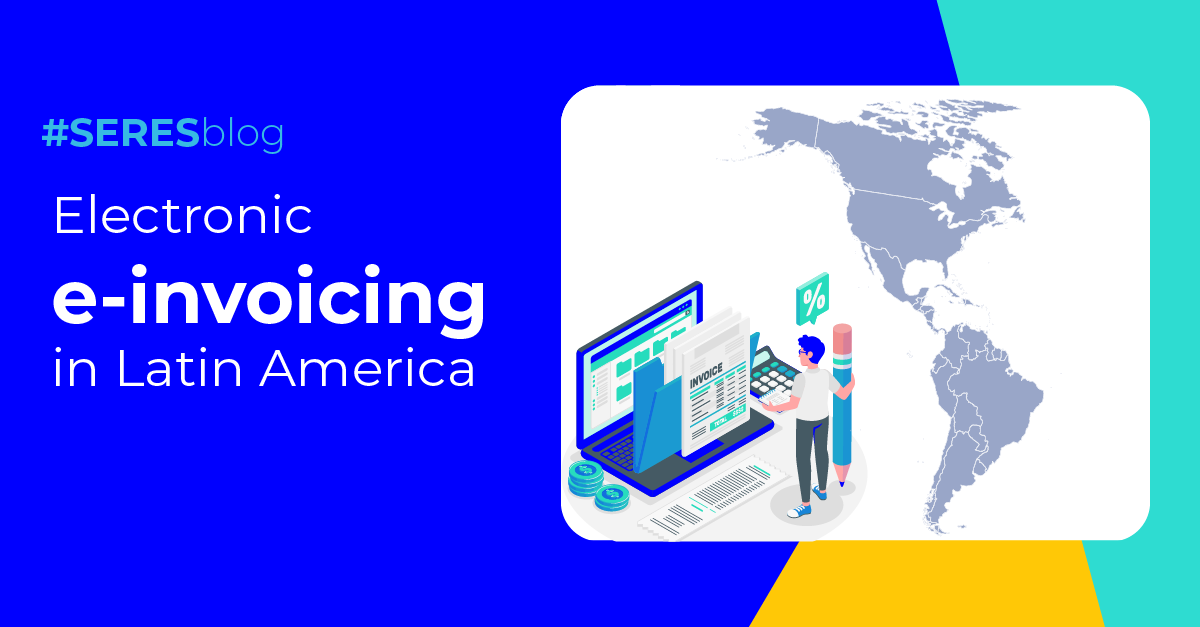E-invoicing in LATAM by 2025: everything you need to know
The utilisation of e-invoicing in LATAM has emerged as a pivotal instrument in the endeavour to curtail fraud and tax evasion. With progressive yet consistent adoption, countries such as Chile, Mexico and Brazil have established leadership in implementing e-invoicing.
Concurrently, other countries, including Costa Rica, El Salvador, Ecuador, Argentina and Colombia, have also witnessed notable advancements in their adoption of e-invoicing in recent years. By 2023, several Latin American countries had already consolidated their invoicing systems, integrating them with business management software and facilitating the digital transformation of their economies.
In 2024, the expansion of e-invoicing in Latin America continued, with new groups of taxpayers being incorporated in countries such as Paraguay, Bolivia and the Dominican Republic.
For instance, in Brazil, novel digital invoicing modalities were implemented, such as NF3-e for electricity, while in Uruguay, deadlines were set for all taxpayers to adopt the system by 2025.
It is noteworthy that the adoption process in most of these countries typically commences with a selected group of large taxpayers. If this initial phase is successful, the subsequent step involves the extension of the system to all other taxpayers and business models.
New features of e-invoicing in LATAM by 2025
Recent developments in the field of electronic invoicing in LATAM have been predominantly concentrated in Venezuela, Peru and Costa Rica. This is due to the fact that the authorities responsible for electronic invoicing have published regulations related to this obligation in recent months.

Electronic invoicing in Venezuela
Towards the close of 2024, the SENIAT promulgated Administrative Ruling No. SNAT/2024/000102, with the objective of regulating the utilisation of digital media in Venezuela for the issuance of invoices and other tax documentation. The tax authority anticipates the implementation of this directive in March 2025.
The ruling will primarily impact taxpayers who:
- These include individuals and legal entities that engage in commercial transactions through electronic means or web portals.
- Furthermore, the use of fiscal machines by both natural and legal persons engaged in commercial transactions via electronic means or web portals is also subject to the provisions outlined in the guide.
- Furthermore, public or private legal persons not obliged to use fiscal machines will also be subject to the new regulations.
In the latter case, digital invoicing systems may be adopted, provided that SENIAT requirements are met.
Electronic invoicing in Argentina
The Revenue and Customs Control Agency (ARCA), which has superseded the AFIP, published the General Resolution 5616/2024 in December 2024 with the aim of establishing updates to electronic invoicing systems in Argentina.
On the one hand, the technical manuals for the Web Service have been available since 15 January and will be mandatory from 15 April 2025.
Concurrently, the online voucher service has been made available, with the mobile biller application and the biller tool for electronic receipts scheduled for release on 5 March.
Electronic invoicing in Peru
The SUNAT has decided to extend the mandatory use of SIRE for a further period. This decision has been taken in Resolution 000293-2024, which establishes that NON-PRICOS companies should start using SIRE from January 2025, while companies considered PRICOS will start in July 2025.
Furthermore, SUNAT has expressed its intention to streamline the monthly tax return process, adopt a dollar-based payment system, and establish a procedure for the reimbursement of overpayments.
Electronic invoicing in Uruguay
The implementation of e-invoicing in Uruguay is a subject of current interest, given the advanced stage of its development. As of 1 January 2025, taxpayers providing personal services as self-employed individuals, along with those registered from July 2023 and those registered between August 2023 and December 2024, are designated as issuers of electronic invoices.
By May 2025, the remaining corporate entities are required to have adopted electronic invoicing in accordance with Resolution 2389/023.
Electronic invoicing in El Salvador
In El Salvador, the utilisation of B2C e-tickets has become a mandatory requirement. As of 1 January, companies that were obliged to send electronic documents must start issuing only electronic bills to end consumers.
Electronic invoicing in Costa Rica
The Directorate General of Taxation (DGT) is scheduled to release version 4.4 of the technical specifications for electronic invoices and receipts in June 2025.
The enhancements to be implemented encompass the introduction of fields for non-resident subjects, leasing modalities, discount codes, exemption options and penalties.
Furthermore, two additional specific nodes will undergo modification in relation to receipts supporting the sale of medicines.


.png)
